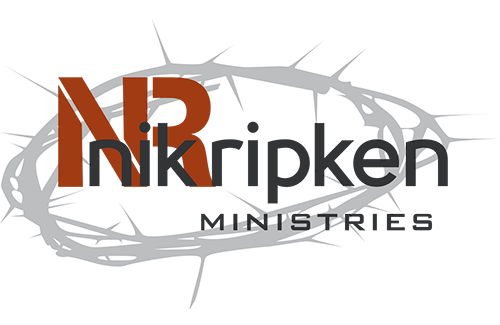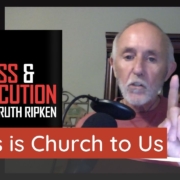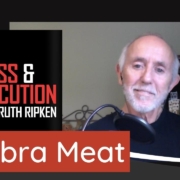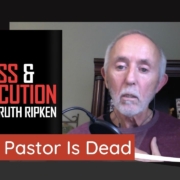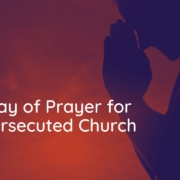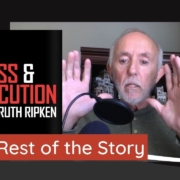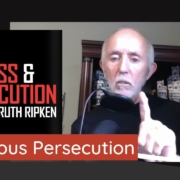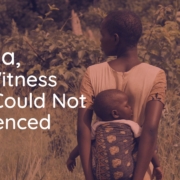The Church as the Body of Christ
This train was headed to Siberia, a place of exile, desperation, and dread. On board the train were the wife and children of the highest ranking pastor in Eastern Europe. The KGB had arrested this pastor and taken him to a torture facility. The family had no understanding of where they were headed or what cruel fate awaited them at their destination.
Were it not for the intervention of the church as the body of Christ, this family would have been abandoned in a shack with no hope for rescue or reprieve.
Be sure to subscribe to the Witness & Persecution Podcast on your favorite platform.
Soviet Train to Nowhere
The kids were crying and confused. They had just seen their father arrested and taken away by the Soviet Union KGB to be tortured for his profession of faith. Their mother could only tell her kids to trust in God because she had no other answers.
A stranger approached this family and asked if this was the pastor’s family, referring to the pastor by name.
Hesitantly, she responded, “Yes, I’m his wife, and these are his children. They’re taking us away somewhere. I don’t know where they’re taking us. And we’re afraid.”
The man replied:
Well, you don’t know me. I’m from a church near the last place the train stopped. Last night, we were praying, and the Holy Spirit told us you were going to be on this train… and told us your husband’s name… and told us to take up an offering, and I was to bring it and to give it to you.
Then he gave her the cash.
Role of the Church
According to Nik, church is where we depend “spiritually, physically, emotionally, [and] psychologically” on one another. The local church – not her own – had collected their possessions, energy, and time to provide for this family in need.
The man added:
Here’s enough money for the next six months. Not only that, I’m going to stay on this train, and I’m going to watch where they dump you…. We’ll find a place for you to live. I will be back in a few months, with more money and more people, and we’re going to take care of you.
The arrested pastor’s church would later take over the duties of caring for this family. For now, it was not two divided churches but one unified body of believers that worked together to find ways to support this persecuted family.
Unity in the Body of Christ
“We are one church, [and we must] carry each other when we cannot carry ourselves any longer,” Nik explains.
The body of Christ is so much more than money. Fellowship includes being lifted up, cared for, and prayed for by those who have devoted their time and energy to loving others. Foreign charity can be a great help to those in need, but it should never replace the invaluable human connection of the body of Christ. This connection brings healing, hope, and peace that cannot be matched with any amount of money.
No matter where we are in our spiritual journey – whether just beginning to explore Christianity or deepening our relationship with God – it is essential to have the physical presence of people around us who share our faith. These people become a support system as we grow spiritually and can provide us with vital encouragement in difficult times. The local church helps keep us accountable when it comes to serving others in a meaningful way that not only meets physical needs but spiritual ones as well.
The Believers Share Their Possessions
Months later, this pastor’s family again found themselves in a dire situation in the middle of Siberia. With temperatures dipping to 30 below zero and neither firewood nor food remaining in their one-room house, the kids of the tortured pastor wondered if they would soon die. The family had no way to contact anyone, and they didn’t know if help was coming. Their mother again told her children to trust God.
The next morning, the family heard a loud knock on the door. When they opened it, there stood a deacon from 20 miles away with boxes of fruit, vegetables, and other food that the church had collected for this family.
Despite the freezing weather and fierce Siberian wolves, the deacon had felt that delaying this trip meant the family would die. But he summarized his obligation to the body of Christ: “You have to go. You don’t have to come back.”
The deacon made the overnight trip not expecting to survive the return.
